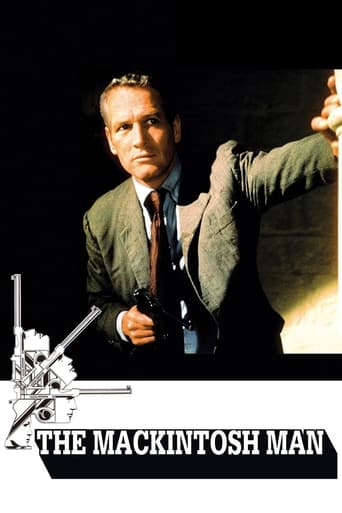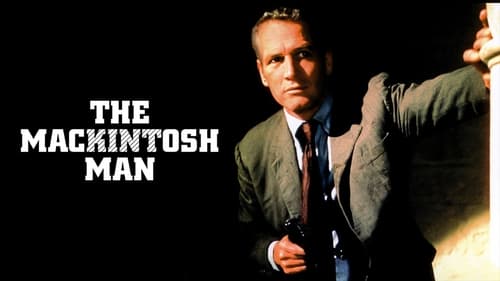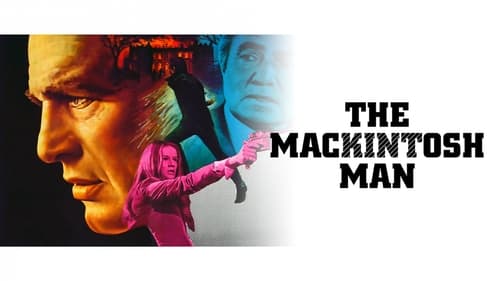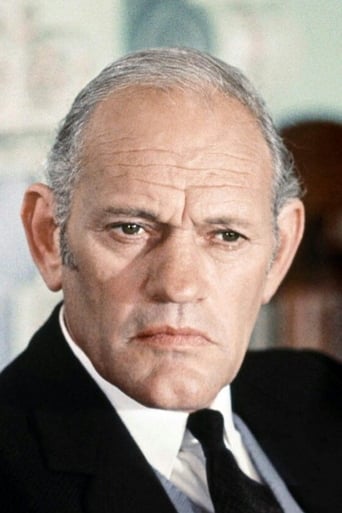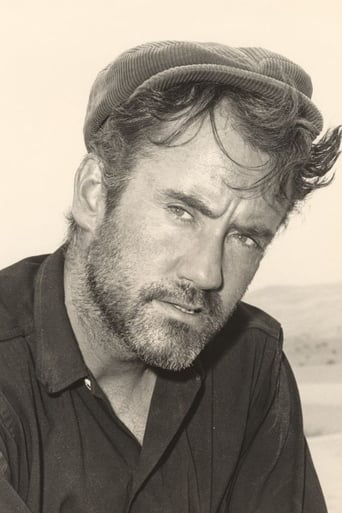Cubussoli
Very very predictable, including the post credit scene !!!
SoftInloveRox
Horrible, fascist and poorly acted
Phonearl
Good start, but then it gets ruined
SteinMo
What a freaking movie. So many twists and turns. Absolutely intense from start to finish.
tony-70-667920
One of John Huston's rare flops: just another routine spy story, and less interesting than "The Kremlin Letter", his other Cold War tale, made three years before. I've never read any of Desmond Bagley's books, and after seeing this I've no desire to do so.Any hope of credibility was destroyed by casting an American and a Frenchwoman as British agents. Whose brilliant idea was that? In addition, I for one had a job to make out what Ms Sanda was saying. James Mason was as stylish ever, and there were good contributions from Nigel Patrick, Michael Hordern and John Bindon, but Ian Bannen was terribly wasted.
MrOllie
Firstly, I apologise to fans of Maurice Jarre but I thought the soundtrack to this film was dreadful. There where some scenes in the film which I found to be so annoying purely because very loud zither music was blasting out. In one scene Paul Newman is looking out of a window onto Irish moorland with music reminiscent of The Third Man or Zorba The Greek deafening our eardrums. I thought quieter more sombre music would have been appropriate so as to create tension and atmosphere, but certainly not a zither. This could have been brought in when we are transported to Malta. Anyway, apart from the music I found it an okay film as Paul Newman's character Reardon is hired by MacKintosh a British Intelligence boss (Harry Andrews) to locate a gang who are helping prisoners to escape from jail. Reardon gets himself sent to prison and eventually escapes via the gang he has been hired to find. Paul Newman has a go at a Australian accent in this movie but it doesn't last very long. Overall, although I found this film lacking in suspense it does have some action and there are far worse ways to spend an evening than watching this.
Bill Slocum
There is one scene I like in "The Macintosh Man." In it, we follow Paul Newman in a tight shot just over his head as he staggers through a dark room in a narcotized haze, falling hard onto the floor a couple of times."Hey, I can relate to this," I thought. "It's how I've felt watching this movie for the last 40 minutes."This is a film that does its best to live up to its tagline: "Whoever he is he's not what you think."I shouldn't have capitalized "Whoever" since in typical 1970s fashion it wasn't capitalized on the poster. This is a film dedicated to the notion of one not knowing anything and wears its decade of cynical malaise on its sleeve. Everything is muddy and seemingly without a point. The good guys are no better than the bad guys. Newman seems alternately disengaged and disgusted by what goes on around him, an objector without a conscience.In the beginning, we watch Newman's character "Rearden" try out an Australian accent while he goes through the motions of a violent diamond robbery in London. Caught, he becomes a sullen prisoner. We sense there's more going on behind Rearden, so that when he gets a chance to make a prison break alongside a Soviet spy (Ian Bannen), it's clear the guy has been playing a strange game all along.A very strange game; none of it makes sense. What's with Rearden's terrible Aussie accent which everyone seems to buy? Why does Rearden's English boss Macintosh (Harry Andrews) have a daughter (Dominique Sanda) who can barely speak English herself? How did Macintosh and Rearden know to count on being invited for an escape attempt with the Russian spy, and why go through such trouble shadowing someone they already had under lock and key? And what's with that stupid, left-field ending?Director John Huston seems to work at making this film his homage to "The Third Man." A Maurice Jarre score reminds you of Anton Karas' zither music, and Sanda and Newman's final scene clearly quotes the famous two-shot finale of Alida Valli and Joseph Cotten. "The Third Man" questioned the spy game with a script brimming with humor and divided loyalties; Walter Hill's screenplay here just rides the bitter vibe of the time in which it was made.James Mason plays a right-wing politician, an "extreme reactionary" we are told, who is introduced telling us that if patriotism is the last refuge of a scoundrel, "you see before you a villain, unmasked and unashamed." Let's just say that anyone with half a brain won't be surprised at how Mason's character turns out by film's end.Newman's dire performance is the film's biggest surprise. He appears thoroughly unengaged, mostly without any trace of the humor he showcased in other movies made around this time like "The Sting" and "The Drowning Pool." Sanda matches him in monotone line readings. Compared to them, Mason is a delight, yet he's too obvious in his smug, sanctimonious treachery to be enjoyed.The whole film is like that. It struggles with exposition disease as people yak about things like diamond theft and the French Resistance that have no bearing on the story at hand. Alternately, it leaves gargantuan plot holes unfilled."Macintosh Man" never makes much sense, yet it doesn't really matter because it's hard to care.
doire
I have always enjoyed "The MacKintosh Man", having read the original novel by Desmond Bagley and being overtly fond of John Huston's work as a film-maker. Looked at today, I think it can be viewed as a typical 1970's cold war thriller, heavy with atmosphere, but having watched it again yesterday, I am curious about a few idiosyncrasies that I believe can be considered pot-holes. It takes a while before we realise that Rearden (Paul Newman) is a British secret service agent, but is it conceivable that any agent would be prepared to spend a lengthy time in jail before eventually being sprung by the elite group known as "The Scarperers" - in this instance we are to believe that Rearden is content to spend a year in a half in a maximum security prison masquerading as a criminal before he is even contacted. I mean, it is quite possible that he could have been there for years before any approaches were made. And only MacKintosh and his daughter know his true identity! How do the authorities know that "The Scarperers" will try to spring the Russian agent Slade (Ian Bannen)in the first place? Why do "The Scarperers" decide to spring the jewel-thief Rearden at the same time as Slade? Surely Slade would have been top priority on his own without complicating matters by deciding to spring a lesser offender at the same time? A half-share in Rearden's money is surely not a good-enough reason. Would a highly respected British M.P. (Member of Parliament), Sir George Wheeler (James Mason, and notice the "Sir"), though in fact a long-embedded Russian agent himself, endanger his position by having a recently escaped Russian agent hidden aboard his yacht in the first place? And then casually sail with him aboard to Malta? I mean, there are a few other instances that can leave the casual viewer wondering about the plot and its development but I think it best to leave them. "The MacKintosh Man" is a solid little thriller that would not withstand too serious a critical analysis. But then again, many of the greatest films ever made are riddled with plot-holes and to delve too deeply would be to destroy the illusion and our enjoyment. And really, all cinema at the end of the day, mediocre or not, is just an illusion. So be it!
